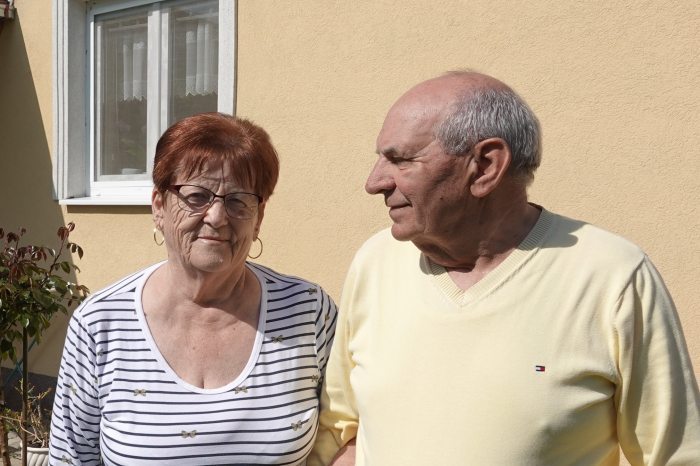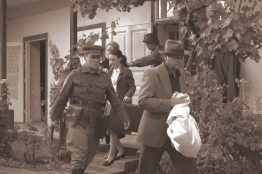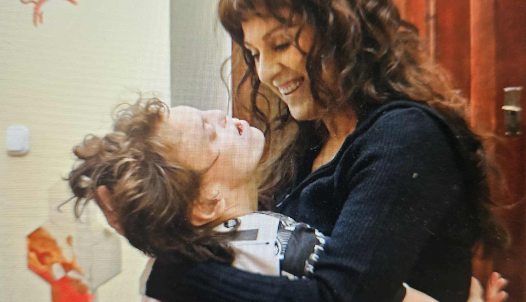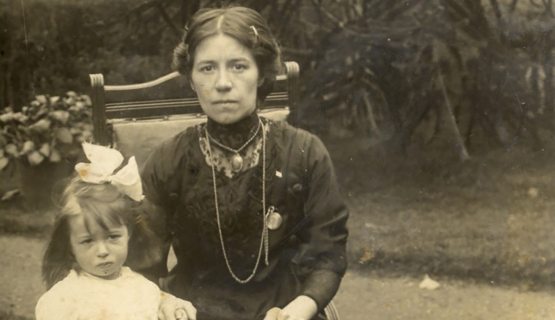”Like the slave market in the colonies” – Gyula Patasy’s vivid memories of the deportation
If you are lucky enough to live for seven or eight decades, you are bound to suffer the inevitable consequences of history. Among the generations living with us, this is especially true of those born in the early 1940s, especially if they came into this world as Hungarians in Czechoslovakia. The 81-year-old Gyula Patasy, who lives in the small Hungarian village of Nyárad, still remembers the story of those turbulent times.
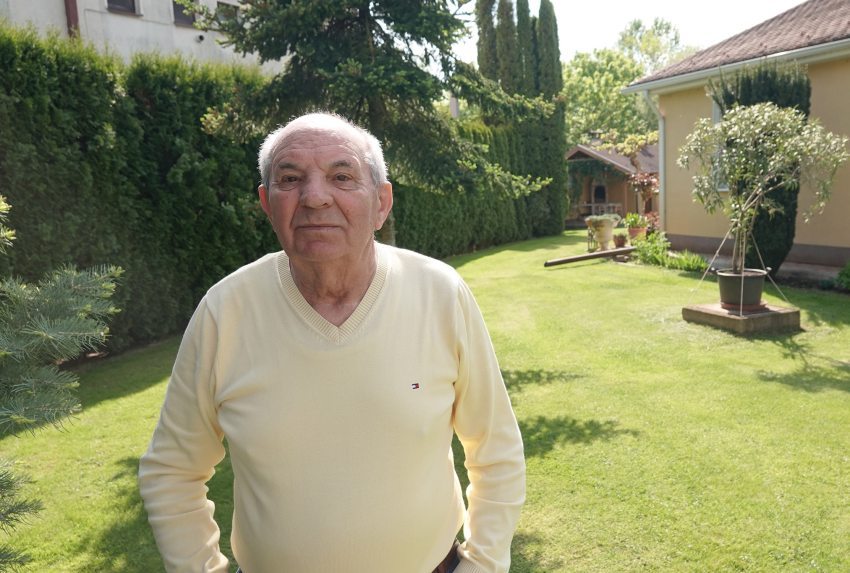
The arbitrary relocation
The peace process that ended the Second World War brought an end to armed military activities in Central Europe, but not peace and tranquillity. After the Soviet troops had driven the Germans out of Czechoslovakia by the spring of 1945, Eduard Beneš, the former (and soon-to-be) president of the republic, who had returned from exile, set to work on a 'constitution' in April. Of the 143 decrees and edicts that established Czechoslovak statehood after the war, 13 were intended to 'settle' the status of the indigenous German and Hungarian communities living in the newly reconstituted country. The quotation mark is not accidental, it was rather unsettling because the legislators did not pay much attention to moral concerns.
On the basis of nationality, the Germans and the Hungarians were collectively blamed for the world war.
The Germans in Czechoslovakia were not treated lightly, and in the years after the war three million Sudeten Germans were driven from their homes. A similar solution was proposed for the Hungarians in the region. The peacemaking powers accepted the unilateral deportation of the Germans, but did not support the deportation of the Hungarian community out of the Soviet Union. Beneš was forced to be content with depriving hundreds of thousands of Hungarians in the region who had confessed their Hungarianness of their citizenship, closing their schools and confiscating their property. They went even further to break up the ethnic Hungarian block in the south of the country. Hungary and Czechoslovakia signed a bilateral population exchange agreement in February 1946, and the arbitrary resettlement of Hungarians in the region began in April of the following year.
In two years, about 80 thousand Hungarians were forced to leave their homes, mostly rich peasants and landowners. In their place, and with access to all the property and land of the deportees, Slovaks living in Hungary arrived - on a voluntary basis! Those who refused to identify themselves as Slovaks (i.e.: "reslovakize"), but did not have enough land to make them an attractive target for a newcomer, were assigned to forced labour.
In the winter of 1946-47, 45,000 people were packed into box wagons and transported to the Noerthern part of Czechoslovakia for forced labour as part of the post-war reconstruction, most of them in the place of the Germans who had been deported a few months earlier.
One of those deportees was Gyula Patasy, then five years old.
"I thought we were going on an excursion..."
"How could you forget that? - Gyula Patasy asks, astonished, when I ask him how, after almost eighty years, he can still have such vivid memories of the days of the deportation. – I can still see the truck pulling into our yard. And ’by accident’ hitting our wardrobe that was already packed there in the yard, ready to move.
Gyula and his family were taken to a village near Prague, Smečno, together with other people from Nyárad, in January 1947. About ten families from the village were taken without any selection, he says. "Sick, old, pregnant women, babies, we were all crammed into box wagons that were used to transport cattle. There were no benches or chairs, nothing but a little straw. Nobody had any idea where they were being taken", his wife tells us. Ms Márta was only a few months old at the time, and her family survived the forced resettlement, but many of her relatives were driven away.
When I ask him how much of what was going on around him he understood as a child, Gyula smiles. "That was the first time I ever sat on a train! I remember as we were rushing towards the Czech Region, I started singing a nursery song about a steamer. I was five years old, I thought we were going on an excursion."
"I couldn't understand the tears in my mother's eyes, nor why they were so harsh to me and ordered me to stop singing."
That wasn't the saddest part of it all. For him, the "human market" after their arrival is still the most painful memory. Young workers were sold out quickly, but large families like theirs were a harder go. "That's what the slave market must have been like, people haggling, outbidding each other, shouting, fighting over who would take the strong young people," he says. The locals spat at the Hungarians, shouting at them. "Afterwards it became clear that they had thought we were coming voluntarily, that we were poor beggars, and we were after their work. Nobody told them we had a house, land, and animals at home. That we had been forced to come, deported, we were not on an excursion."
The legend of Uncle Tudleto
The family was lucky after all: they were able to stay together and were taken in by a respectable Czech landowner. They were given a servant's house, a small plot of land, and crops, the children could go to school, and they slowly began to integrate into the local community. The local people got used to them. "One day I was walking down the street and I was hit by a motorbike, a Czech guy. I got a scratch or two, but the guy was so scared that he followed me for weeks, and took me out on his bike several times. We couldn't really talk, I didn't understand Czech, but he was a decent kid."
The families from the fully-Hungarian villages in the region north of the River Danube did not speak Slovak or Czech. In their new environment, children were sent to the shop, and they pointed at the items with the help of the local shopkeeper, “Uncle Tudleto”. “He got this strange name from the relocated Hungarians," Gyula explains. "We didn't speak a word of Slovak, let alone Czech. We only communicated by pointing. The shopkeeper would unload the goods on the counter one by one, asking each one: 'tohle to?' (this here? - ed.), and we would shake our heads until he guessed what we wanted." And so the legend of Uncle Tudleto the shopkeeper was born.
Decades later, they heard from the Hungarians who had stayed there that the poor shopkeeper was referred to by this nickname until his death.
Some of the young people found a partner and stayed, but Gyula and his family returned home. In the spring of 1948, the Communists took power in Czechoslovakia, and the party leader, Klement Gottwald, hinted in a radio speech that the relocated Hungarians would soon be able to return home. There was no official decision yet, but most of the women and children left for their homes. They made the journey almost in secret, fearing that the authorities might turn them back to the Czech region at any moment.
It was difficult to start again. Shortly before history swept the family away, they had replaced the roof of their house. By the time they got home, the wooden covering, barely a few years old, was gone, Gyula remembers. "Someone took the new boards. We know who it was. In a village this size, everything gets around," he says. He started primary school in Czech, but when he returned home, he couldn't learn in his native Hungarian language straight away. After the war, the Czechoslovak government closed all Hungarian schools, and only after the communist takeover did things ease up a bit. The party-state, which thought in terms of social classes, did not tolerate discrimination between nationalities, at least on the surface, and the possibility of education in the mother tongue was restored.
"All in all, we didn't have a bad time in the Czech lands," recalls Uncle Gyula, "at first yes, but later we hardly encountered any hostility towards Hungarians." Interestingly enough, a decade and a half later, his wife, Márta, studying at the teacher training college in Léva (Levice), experienced more rejection of the majority nation. At the turn of the century, Léva (Levice) had been an almost exclusively Hungarian-speaking city. After the war, thousands of Hungarians were forcefully relocated from it and the city was artificially swollen up with Slovaks so by the 1960s the majority of the citizens were Slovaks. "I had no idea what chauvinism meant. I didn't know the word. Well, there I got to experience what it was.
We were often told to „Get out and go to the other side of the Danube”. At first, it was very difficult, I cried all night.
Even the bell tolled differently than at home. It was a very difficult time," Ms Márta says.
Be happy with what you have!
Márta and Gyula were married in 1966 and this year they celebrate their 57th wedding anniversary. As a newlywed, I am curious to know the "big secret", but to my disappointment, they both smile and tell me there is no secret. "There were, are, and will be conflicts. We can still quarrel, even at, let’s say, how to hoe. I always say that if a couple doesn't quarrel sometimes, then one of them is stupid because he/she overlooks everything for the other," Gyula laughs, and his wife takes over.
"We have worked a lot all our lives. There were many of us brothers and sisters, parents couldn't support us financially, it was a stressful life. Maybe it helped that we could enjoy the little things. We built up our life bit by bit. A young person now can't be as happy about a family house as I was about a lamp or a set of pots and pans. If there's a secret, maybe this is it. You have to work for everything, then you can find joy in the smallest things," says Ms Márta and Gyula adds, "Remember what our bridesmaid used to say? “There is no such thing as having so much money that you can't spend it all and there's no such thing as having so little that you can't save some. We tried to live by that!"
